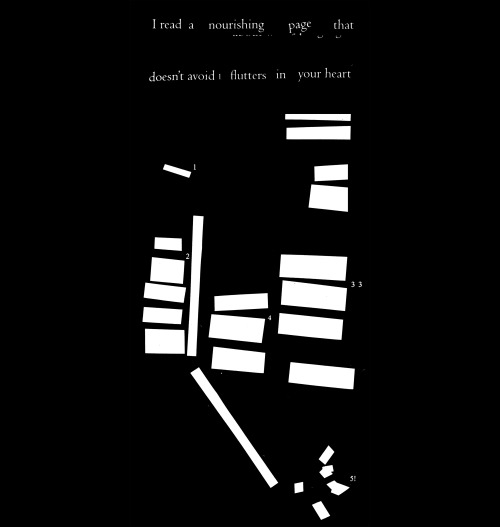I Had Been Working On The Assumption That Eventually Everyone Figures It Out & Goes On Living The Life

I had been working on the assumption that eventually everyone figures it out & goes on living the life they've created which is mostly true but as soon as you figure it out, something else changes so you figure that out too, & you keep going so it really doesn't stop & there isn't just 1 "it" to figure out which is ok & a little intimidating but i know we will be fine as long as we keep on creating & help each other along the way
by AdamJK
More Posts from Generalelective and Others

@henni.kristin https://ift.tt/2EgKv54 -> Telegram Design Bot

Cy Twombly’s Rome apartment with works by Picasso, Chamberlain, and Warhol


Poesia concreta. Brossa, Iglésias del Marquet i Viladot, Petite Galerie, Lleida, 1971 [Fundació Joan Brossa, Barcelona]




Dallol Volcanic Acid Pools
Geological one of the most active spots on Earth, the Dallol valley is a volcanic explosion crater in the Danakil Depression of Ethiopia–some 328 feet below sea level. A combination of subterranean basaltic magma (ie new sea floor) and salty water has created phreatic explosions–the latest one in 1926. These steam explosions create pockets of volcanoes, bubbling hot water pots, bright yellow sulfur fields, and expansive salt flats. Numerous hot springs are discharging brine and acidic liquid here. Widespread are small, temporary geysers which are forming cones of salt.
Dallol offers an opportunity to see the first signs of new ocean basin forming. South of the dormant Dallol volcano, rectangular salt slabs are cut and transported up into the highlands in a near endless procession of camel caravans. The salt canyons south of Dallol Mountain are some of the most impressive geological features in the area. But with the heavy geothermic activity, the basin shape, and the lack of wind, it’s also one of the hottest areas on earth. The mineral-rich pools avoid evaporation only by continuous feeding from thermal springs.


Sunrise at Zabriskie Point, Death Valley

Join Kameelah Janan Rasheed for a two-part workshop on close reading, in conjunction with her installation Kameelah Janan Rasheed: Are We Reading Closely?—on view November 11. In the first session, on November 19, Rasheed presents an artist lecture that gives a “close reading of close reading.” The second session, on December 17, expands the practice of close reading into a communal exercise as participants work together to dissect short texts, pieces of media, and current events.
Each session is limited and registration is required. Registration is $25 for both sessions, or $15 for a single session. A Zoom link will be sent by email.
Kameelah Janan Rasheed (American, born 1985). A Nourishing Page (detail), 2020. (Photo: Courtesy of the artist)
-
 toofemmetofunction liked this · 3 years ago
toofemmetofunction liked this · 3 years ago -
 generalelective reblogged this · 4 years ago
generalelective reblogged this · 4 years ago


